Robot Dog Becomes First Robot to Complete a Full Marathon on a Single Charge
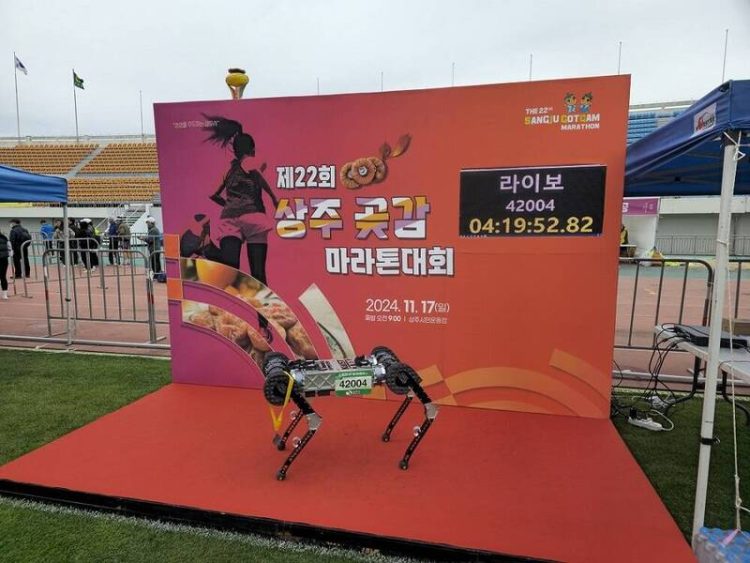
Laibo 2, a quadruped robot developed in South Korea, has become the first robot to ever complete a full marathon on a single charge after running the 42.195-km Sangju Dried Persimmon Marathon. Developed by Professor Hwangbo Je-min and his team at the Korea Advanced Insitute of Science and Technology, Laibo 2 is an advanced quadruped […]
Smart Mouthpiece Turns Your Smartphone into a Playable Musical Instrument

The Zefiro is a clever little MIDI controller that plugs into the USB-C port of your smartphone essentially turning it into a playable musical instrument. Developed by Italian startup ARTinoise, the Zefiro is one of the most ingenious gadgets we’ve seen in quite a while. The small, colorful mouthpiece may look like a vape, but […]
Researchers Develop Way to Detect Spoiled Milk with a Smartphone

Australian scientists at the University of New South Wales (UNSW) have developed a method of accurately checking if milk has gone bad by using the vibration motor inside every smartphone. The modern smartphone has been a jack-of-all-trades for a while now, but the ubiquitous gadget is getting new functionalities virtually every day. On of the […]
Company Launches Motor-Powered Pants That Increase Leg Strength by 40 Percent

The Arc’tryx MO/GO Hiking Pants come with a built-in exoskeleton powered by powerful motors that can increase the wearer’s leg strength by 40 percent and make them feel 30 pounds lighter. Motor-powered exoskeletons have been a reality for years, especially in the medical field, but not so much in the leisure department. That is about […]
Using the World’s Brightest Flashlight Feels Like You’re Holding the Sun in Your Hand

The aptly named IMALENT MS32 Brightest Flashlight is capable of outputting up to 200,000 lumens of light, more than any other commercially available flashlight. Imagine having the ability to turn night into day in the palm of yourself and you kind of get a sense of what using the world’s brightest flashlight feels and looks […]
Company Creates AI Voice Filter That Turns Angry Screams into Calm Speech

A Japanese company has developed an artificial intelligence filter that can detect angry screams and translate them into calm speech in order to reduce the stress experienced by call center operators. Large tech companies have long been aware of the stress their call center operators are exposed to every single day, with many customers taking […]
Scientists Create AI System That Can Predict When You Die with Startling Accuracy

An artificial intelligence model developed by an international team of researchers has demonstrated the ability to predict future events in people’s lives, including the time of their death. Life2vec, a so-called transformer model trained on a massive volume of data to predict various aspects of a person’s life, was created by scientists in Denmark and […]
Scientsist Develop Light Exosuit That Helps People Sprint Faster
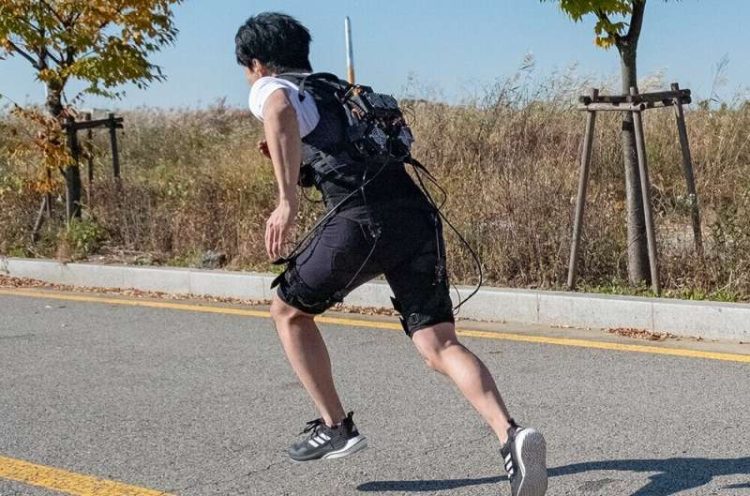
Scientists at South Korea’s Chung-Ang University have created an ultra-light exosuit that can help runners cover short distances faster. They may not be mainstream yet, but exoskeletons have been a part of our world for a while now. We’ve seen some that make carrying heavy loads a breeze, and others that help physically disabled people […]
Chinese Engineers Once Moved a 30,000-Tonne Bus Terminal with Hundreds of Hydraulic Jacks

Chinese engineers once set a Guinness World Record After Rotating a 30,000-tonne bus terminal in Xiamen 288 meters by using hundreds of hydraulic jacks and rolling tracks. The Houxi Long Distance Bus Station is situated in the Jimei District of Xiamen, China’s Fujian Province. Four years ago, local authorities decided to move one of its […]
Amazon Introduces Bipedal Robot Workers in Its Warehouses
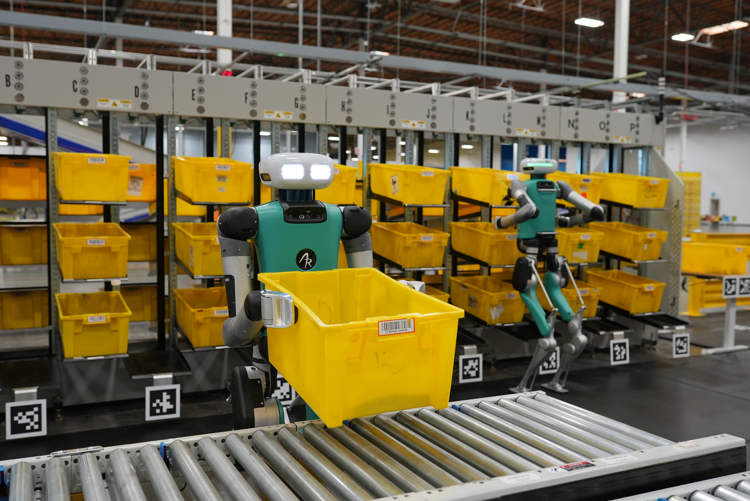
As part of its ongoing efforts to integrate robotics into its gigantic warehouse operations, Amazon recently began experimenting with a bipedal robot called Digit that should be able the most repetitive tasks. Amazon warehouse employees have long gotten used to working alongside robots, but staff at the company’s BFI1 experimental facility in Sumner are now […]
High-Resolution Virtual Windows Let You Add Stunning Views Where There Are None

High-resolution digital windows like the ones sold by LiquidView give users the chance to wake up to virtually any view imaginable, even if they have no conventional windows. Modern problems require modern solutions, and when it comes to the lack of windows or desirable views, American company LiquidViews has an intriguing proposition – a virtual […]
China’s AI-Powered Online Sellers Can Sell You Stuff 24/7

China’s online store is becoming increasingly dominated by AI-powered clones that never tire of trying to sell you things and can literally work 24 hours a day, 7 days a week. The Chinese online shopping scene is very different than what we’re used to in the West. Live streaming is by far the most lucrative […]
The World’s Smallest Commercially Available Camera Is the Size of a Grain of Salt
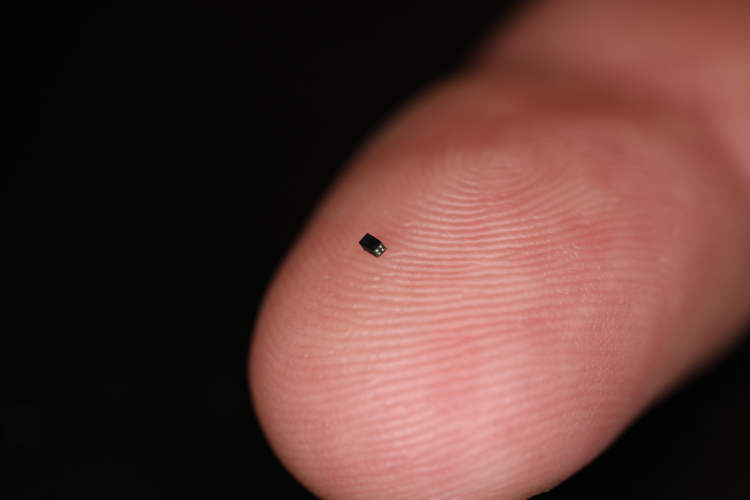
The Omnivision OVM6948 CameraCubeChip® holds the record for the world’s smallest commercially available camera. It measures 0.65 mm x 0.65 mm, with a z‑height of just 1.158 mm. Developed by Omnivision, a global technology company specializing in innovative advanced digital imaging, analog, and touch & display solutions for multiple applications across several industries, the CameraCubeChip® […]
Japanese Company Creates Real-Life Mecha Robots for Billionaires
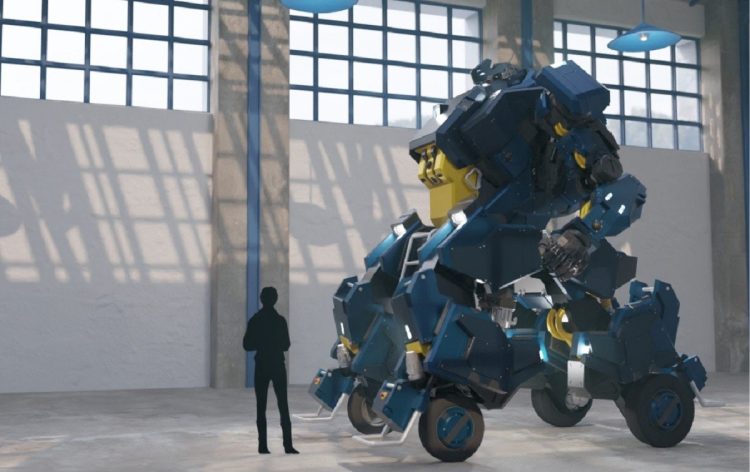
The ARCHAX is a real-life 4.5-meter-tall mecha robot created by Japanese company Tsubame Industry that can be yours for the low price of 400 million yen ($2.75 million). If, like me, you grew up watching Gundam anime and playing video games like Armored Core or Titanfall, you probably imagined yourself piloting a giant mecha at […]
Wearable E-Book Reader Is Shaped Like a Pair of Eyeglasses
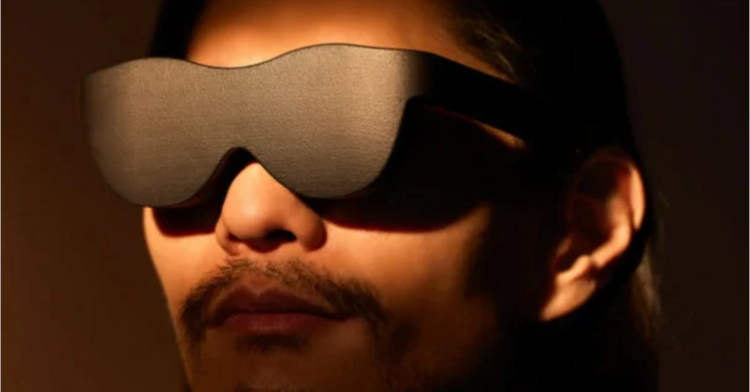
The Sol e-book reader is a new and innovative e-book reader that you wear on your face, just like a pair of sunglasses. If the humble Kindle isn’t just isn’t good enough anymore and you’re looking for the next big thing in the e-book reader space, you may want to check out the Sol e-book […]
